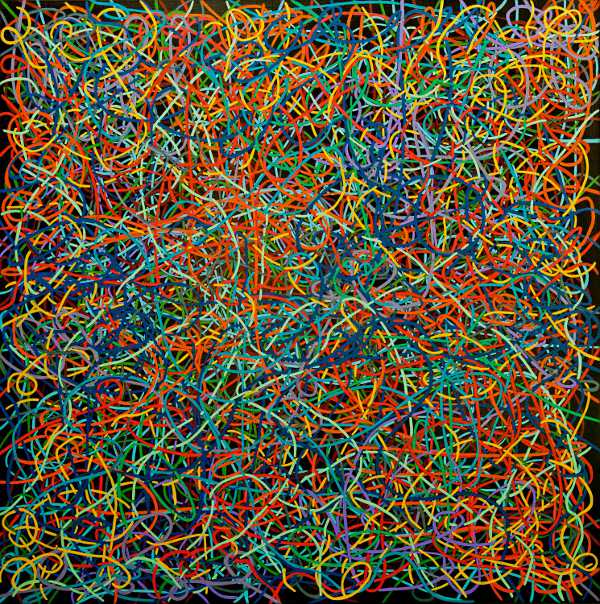FWP:
SETS == IDIOMS; MIDPOINTS
Are the knots genuine difficulties, or are they in the mind of the lover? The placing of darmāñdagī meñ , 'in exhaustion', is such that it could apply either to the chances of doing anything when one is in a state of exhaustion, or else to the chances of seeing or knowing, when one is in a state of exhaustion, whether anything can be done.
On the first reading, we see the speaker weary and defeated after the usual (and some unusual) struggles with life in general. He reflects on the irony of at all: once he was good at puzzle-solving, at getting things done, at knot-unravelling-- and things were so easy then that there hardly were any knots to unravel. Now, when life is closing in on him and things are much tougher, his skills and abilities are also reduced (by time? age? sickness? the ravages of passion?), leaving him exhausted and unable to cope. Isn't that just the occasion for a wry observation like this?
Or, of course, as in the second reading, the line might reflect only the way the world looks to an exhausted, worn-out person. When you're absolutely exhausted, nothing looks feasible, everything defeats you, you can't even imagine how you might once have coped with your life. You know there was a time when life flowed smoothly and coherently, with almost no knots, and you also had capable fingers for unravelling any little tangles that did develop. But in a state of true exhaustion, you hardly believe all that was ever real. Smooth strings, clever fingers--it sounds like a distant fairy tale. (Or like a powerful excuse for inaction?)
The simple, unforced colloquialness of the idiomatic kuchh ban paṛe to jānūñ is almost impossible to translate; I've just tried to choose the nearest English phrase I can find.
For more on knots, see {8,2}.

Hali:
In the second line, he has presented this theme: when difficulties had not surrounded me, at that time I had strength to endure their occurrence.
==Urdu text: Yadgar-e Ghalib, p. 129